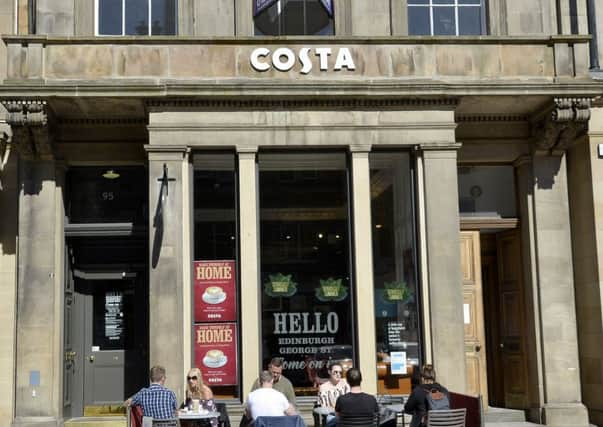Martin Flanagan: Whitbread counts Costa of weak pound
This article contains affiliate links. We may earn a small commission on items purchased through this article, but that does not affect our editorial judgement.


People’s cappuccino or skinny latte, not complete for some customers without the virtually statutory email check or laptop session, has proved inviolable despite the aftermath of the financial crash and last recession. But the big coffee chains are not proving immune to a more recent development, the slump in sterling since the Brexit vote.
Whitbread’s Costa chain’s latest slowing of sales growth, while not significant enough to be the proverbial canary in the coffee house, may be a sign of more challenging times to come if the pound stays weak.
Advertisement
Hide AdAdvertisement
Hide AdAlthough Costa’s interim same-floorspace sales rose 2.3 per cent, this slowed to 2 per cent in the second quarter to 1 September from the 2.6 per cent it reported in June, the latter mainly before the Brexit vote and slump in sterling.
In addition, Costa’s profit margins in Q2 fell 1.8 percentage points. The problem is that coffee beans are priced in dollars and are at their highest level in two years.
This is problematic when the pound is struggling, which currently does not look a transient factor. Whitbread chief executive Alison Brittain’s dilemma is whether to increase prices to try and stabilise profit margins at the risk of consumer resistance.
Costa’s other problem is that it and the likes of Caffe Nero, Starbucks, Coffee Republic etc are facing competition from smaller independent coffee shops often offering newer blends and benefiting from the “cool factor” that large incumbents after a lengthy period of success cannot replicate.
Costa is responding by trialling new “finer coffee” stores, somewhat along the lines if you cannot beat the artisan beverage operators, join ’em.
Whitbread’s shares led the fallers in the FTSE 100 at one stage yesterday as the sales slowdown and abiding pressures outweighed a 3 per cent rise in pre-tax profits at the group (which also owns Premier Inn hotels).
That may have been a bit of a negative overreaction, particularly given that Costa’s international expansion remains on track to compensate for the issues of a more mature UK market.
But, even so, investors will be keeping a weather eye on coffee prices and future sales performance.
